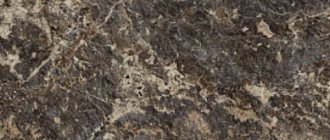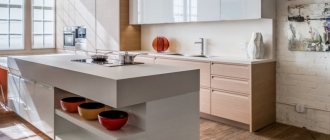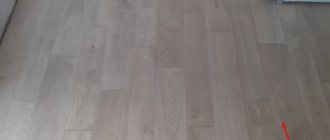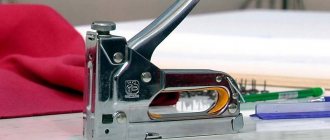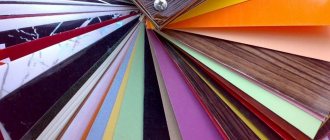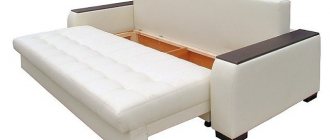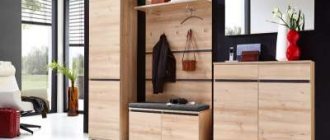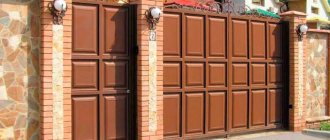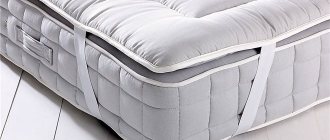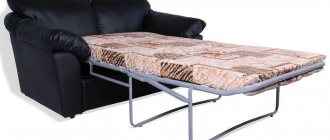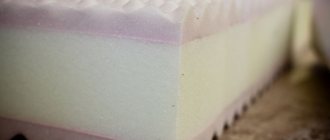Many high-quality interior items lose their attractive appearance after a long period of use. At the same time, they remain strong and reliable, therefore suitable for further use. You can improve their appearance in different ways, but the most optimal is self-adhesive furniture film, which comes in different types and is also suitable for various items. Self-adhesive film can be purchased for the kitchen or bathroom, as well as other rooms.
What is the material
With the help of self-adhesive film it is possible to update any design. It is not difficult to stick it on different substrates, and the resulting coating has a long service life and is highly attractive.
Film for pasting furniture consists of several layers:
- the front surface is highly durable, and also has a certain pattern and texture, which makes it easy to update any furniture at home;
- glue intended for the procedure of gluing material to different surfaces;
- a protective film that is removed immediately before the self-adhesive film is attached to a specific piece of furniture.
Furniture film is made from different materials, but the most popular are products made from polymers, metallized foil or plain paper.
Self-adhesive films are produced using different technologies. For each method, specialized equipment is used. The following methods are used for this:
- cast color film - this material can be used for kitchen furniture or used in other specific conditions. Self-adhesive products made using this method are durable, easy to use and retain their unique colors for a long time. Photos of them can be seen below. This material is heat-resistant, so it can be used not only for fastening to furniture, but even for packaging furniture. During repairs, it is taken into account that fixation must be carried out exclusively on a base that is ideally even, clean, dry and smooth. This self-adhesive material can be used for chipboard, MDF or other surfaces. This self-adhesive film can cover not only various interior items, but also doors;
- Calendering technology - gluing material made using this method is quite simple. The resulting coating is resistant to shrinkage and other negative factors, but over time it shrinks and therefore loses its attractiveness.
Thus, updating various interior items with a special self-adhesive film for furniture is an excellent solution for every owner of these structures. Self-adhesive film for furniture has many unique parameters, is suitable for gluing various surfaces, and is also intended to protect them from various negative influences.
Heat-saving self-adhesive film
But there is a film that plays not only an aesthetic role in the room, but also serves as a “keeper” of heat. We are talking about heat-saving window film.
The range of modern technical solutions in the field of thermal insulation today is quite wide. It starts from the use of heat-reflecting materials such as ordinary foil and ends with the introduction of energy-efficient heat-reflecting glass. Standing apart so far is one of the most promising and requiring closer attention and analysis technology of double-glazed windows “Heat MirrorTM” (“Thermal Mirror”) of the American company Southwall Technologies.
The operating principle of “Heat MirrorTM” looks like this: “Thermal Mirror” reflects heat towards its source: in the summer, to prevent heat from penetrating into the room, it reflects it outside, and in winter, when it is necessary to retain heat as much as possible, it reflects it inside the room. The unique design of the “Thermal Mirror” combines the positive characteristics of double-chamber glazing and low-emissivity glass coating, allowing us to achieve the highest thermal resistance of windows, close in value to the thermal resistance of walls.
The proposed solution is based on taking into account all the features of the transfer of thermal energy through translucent enclosing structures, which is carried out in three main ways: thermal conductivity, convection and thermal radiation. The main component of the “Thermal MirrorTM” double-glazed window is a super-strong optical polyethylene terephthalant film 75 microns thick with low-emissivity coating.
“Thermal Mirror” double-glazed windows create comfort conditions that are not available when installing conventional glazing. This comfort can be expressed as follows:
- lack of cold air flows and feeling of cold near windows in winter;
- reduction of heat losses in winter by 60%;
- absence of solar overheating in summer without the use of curtains or tinted glass;
- reduction in air conditioning costs in summer by 30%;
- more uniform indoor temperature throughout the year;
- improved sound insulation.
Due to the installation and tension of only one such film in the interglass space, not only huge (up to 70%) heat losses by radiation are cut off, but also convection is reduced, which together increases the heat transfer resistance of the glazing structure by 50% or more. Light weight, standard translucency and soundproofing qualities complement the technical characteristics of these products.
Application benefits
The use of self-adhesive products has many advantages:
- Counter coverings made before exposure to high temperatures, therefore can be used in different rooms, which makes it possible to update kitchen furniture;
- in the process of their production, only safe components are used, so such products do not harm people, which allows them to be used for children's furniture;
- They are available in different colors, so you can choose white glossy film, black or some other;
- it is allowed to buy material by the cut, so you will receive as much product as needed to complete a specific task;
- the painter performing the process should not have specific skills, so a novice painter can cope with updating any item;
- The material can be used to decorate a nursery, for which self-adhesive paper with a pattern depicting various cartoon characters is used;
- if the work is carried out in a small room, then the ideal choice would be a mirror film, which helps to visually increase the space;
- the resulting coating protects the base from various negative influences;
- does not require specific care;
- the adhesive layer does not require the use of additional adhesives, so reliable and perfect adhesion is guaranteed in any case;
- ensures the durability of the resulting coating.
Some manufacturers offer films for furniture that have a truly unique and inimitable appearance, and their photos are located below. The disadvantages of using this material include the fact that before updating any item, you should carefully prepare it before this work, since any distortions, contamination or other problems are not allowed.
If you need to update an old massive set, then material with wenge colors is perfect.
Preparation stage
See also:
What material to choose a kitchen set from: inexpensive and practical
You can’t just take the film, brush the bread crumbs off the table, and stick the material on.
The preparatory stage is much more thorough and serious. Here it is recommended to do the following:
- Tighten all hinges, screws and other fasteners. It is important that nothing protrudes above the base of the furniture. Otherwise, the film focuses attention on them after editing;
- Check the furniture for defects, cracks and chips. It is better to eliminate obvious problems using putty. After it dries, grouting is done with sandpaper;
- Degrease surfaces. To do this, you need to moisten the cloth in solvent and go through all the corners. Don't skip. This increases the chances of getting an excellent result.
Take this step seriously. Often this is where people determine the appearance of the furniture after applying the self-adhesive. Some people are frankly disappointed in furniture film. Although the problem here is that they did not follow the recommendations.
Criterias of choice
This material is presented in numerous forms on the market, so choosing a self-adhesive design is often difficult, so some advice from professionals is taken into account:
- operating conditions - if the material covers interior items that are constantly located in residential heated premises, then it is allowed to buy the standard version. If it is necessary to cover elements located on the street, then a special lamination film is selected that is not afraid of negative temperatures;
- the condition of the surface that needs gluing. Pasting should be carried out exclusively on a base that is smooth and clean. If it is not possible to level the surface, then a film material consisting of several protective and dense layers is selected;
- attractive appearance. The purpose of lamination is to improve the appearance of various objects, so you must choose a material that has the desired color or texture. It should be suitable for the specific interior style and tastes of the owners of the premises;
- coloring - when decorating any furniture, you should decide what color the material will have. The most commonly chosen colors are black, red and white. If you just want to protect the surface, you can cover it using transparent material.
It is advisable to choose a product made of PVC rather than polyethylene. Acrylic film also has excellent parameters. It is sold by the cut, and photos of its varieties are presented below. By covering various furniture with acrylic, you can be sure of its protection from various negative influences. Furniture packaging films are used when transportation of structures is required, and at the same time it is necessary to protect them from possible contamination during this process.
How to glue self-adhesive film with your own hands
Any home craftsman can handle the job, even if there is virtually no experience with such operations. The main thing is to follow absolutely every point of the instructions from the manufacturer and more advanced builders.
Any home craftsman can handle the job, even if there is virtually no experience with such operations.
Surface preparation, on what base can be glued
Self-adhesive requires slightly different surface preparation conditions than vinyl or paper counterparts. For example, fastening to a surface is completed quite quickly, but even such conditions do not eliminate the need to carefully prepare everything. The main thing is to give an even look and make sure that there are no defects.
Manufacturers put forward the following requirements:
- A mandatory step will be priming the wall surface;
To carry out the work, you need to select tools, including a marker and a clean rag, scissors and a level, and a simple tape measure.
- You can’t do without preliminary markings for wall film.
The action is performed using a plumb line. Step back from the corner using a building level. Then draw the most even line possible, from top to bottom. Everything must be done so that the edge of the wallpaper slightly extends beyond the wall surface adjacent to the corner.
Separately determined with a suitable height for the wall. It is better to leave a few centimeters free, in reserve. This is a suitable method if there is no need to use specific patterns to which everything is adjusted.
If necessary, the strips are combined even before cutting is performed. Otherwise, there is a high probability that the material will run out at the most unexpected moment. The bathroom is not fully finished.
The main thing is to give an even look and make sure that there are no defects.
Main stages of work
The main thing is that the first stripe is applied correctly.
- They start by cutting the strips themselves. It is recommended to leave a slight tolerance so that everything is not perfectly level;
- The protective layer on the material is left until the last moment, as long as possible. Bend this part from the very top edge of the canvas. Initially, this is done no more than 15 cm. Next, the sheet is applied to the wall for which finishing work is planned. Everything is aligned depending on the marking line;
- Proceed to gluing the material. They are smoothed out, constantly in different directions. The movements go from the edge to the center. Any rag will cope with such a task without any problems, even if the base is brick;
The main thing is that the first stripe is applied correctly.
For the selected wallpaper, it is prohibited to stretch the material to any extent. Otherwise, the natural geometry changes not for the better. The result will be the appearance of overlap at the seams.
- Many people face the problem of air bubbles. It is difficult to get rid of these defects immediately. It is difficult to glue wallpaper without flaws. When bubbles appear, use a needle to pierce everything. And then the defective area is completely smoothed out;
- Fabric or cork materials are not suitable for those who are interested in the cheapest deals. But these types of wallpaper can boast a long service life, during which they retain all their properties.
Sometimes one of the rooms is freed from decoration. In the case of film, it is enough to pick up one of the ends, and the problem will be solved. Then everything else is removed from the walls. The kitchen also allows such work.
For the selected wallpaper, it is prohibited to stretch the material to any extent.
Color spectrum
When choosing a laminating film, you must take into account what color or texture it has. The choice of color depends on what kind of furniture needs to be covered, in what room it is located and what kind of furnishings need to be made in the room. When choosing colors, certain recommendations are taken into account:
- if it is necessary to cover items located in the children's room, then they must have bright and interesting colors or designs, as they must appeal to children;
- For a bedroom or living room, cut-to-length material with a brown or beige color is perfect;
- Glossy film for furniture is even available in textures that imitate natural wood or other expensive and specific materials, and these are most often used in the kitchen.
When choosing self-adhesive films and their colors, the painter who acts as the owner of the premises must additionally take into account his own preferences when creating a color scheme.
Features of gluing self-adhesive onto non-standard and uneven surfaces
First, the dimensions of the surface that requires processing are determined. Special markings are usually applied on the back of the films to simplify calculations. The front side is marked and cut into a pattern, if necessary. It is recommended to leave a 2-centimeter margin at the edges; it will be inexpensive.
The main thing is to lay the coating evenly and avoid bridging. When processing difficult areas, the material is cut into small pieces to complete the job. Using a hair dryer will make the task easier.
Use a utility knife to remove areas that protrude above the surface.
Application will fail if the base is not clean. Evenness doesn't matter. The combination of the pattern is thought out immediately in order to avoid delays later. The material requires careful cutting so that no nicks remain.
The main thing is to lay the coating evenly and avoid bridging.
There are other common mistakes that are encountered in practice:
- The film absorbs moisture, so after gluing it, do not forget about drying.
- You should not leave removing air bubbles for later; this problem is usually solved immediately.
- The material is cut as carefully as possible.
- The combination of the pattern on the film is thought out right away.
- When slicing, they often forget to leave a small margin. The roll also requires this, no matter what kind of self-adhesive is used.
The adhesion rate will decrease if you sprinkle the material with talc. This step is relevant for large surfaces to be covered. To care for the surface, use simple damp sponges soaked in detergent. There are no additional care requirements. It is recommended to avoid using powders and granules as they harm the coating. Wall and toilet, other rooms will not look good.
To care for the surface, use simple damp sponges soaked in detergent.
High-quality self-adhesive film is suitable not only for houses and apartments, but also for public institutions. This is a great option for updating your interior with minimal investment. Both natural and artificial materials are used to create this decorative coating. Everyone will find an option that can fit into the current interior. Only the work is done carefully, without mistakes. Then the appearance of the room pleases for many years, and then it is changed if the material gets boring. The solution is chosen based on stylistic design and color preferences. Cafes and bars are decorated with film to protect furniture from damage from the external environment. The service life is increasing, the appearance is being updated.
Nuances of use
How to glue this material so that the films adhere evenly? The procedure for working with it is considered quite simple, since only sequential actions are performed:
- the required amount of material purchased per cut is calculated;
- it is decided what parameters, appearance and other features it will have, and gloss or matte film can be chosen;
- material is purchased for cutting in the required quantity;
- the surfaces are prepared before directly gluing the new coating, and the plastic base only needs to be cleaned of dirt, but the wood is leveled and sanded;
- the film itself is prepared, for which it is cut into separate elements, with the help of which various objects will be pasted;
- the protective material is removed, after which the painter applies parts of the film with the sticky side to the desired areas of certain furniture;
- The film is aligned so that it adheres evenly and correctly;
- if a fairly large surface is being covered, then it is recommended to first apply a soap solution to the underside of the material, which will allow you to adjust its location for quite a long time;
- To level the painter, you can use a regular rag or roller, but you should not make significant efforts so as not to tear the coating, and a photo of the finished result is located below.
It is even possible to use special elements for the mirror, which are transparent and protective films, and they must be applied without using a soap solution. Thus, any home furnishings can be covered with self-adhesive furniture film. Provides effective protection of the covered element from various negative factors. Photos of different types of films are located below, and they are inexpensive, beautiful and durable. Working with them is considered so simple that it can easily be done on your own.
Difficulties in work and their solutions
Problems often arise with processing the ends and shaped parts of kitchen units made of MDF or other material. An industrial or household hair dryer will be a good helper in this case.
The restoration will go faster if you work together: one person stretches the material by heating it with a hairdryer, the other carefully glues it to the base.
It is easier to apply the self-adhesive tape evenly on a damp surface. To do this, lightly moisten cabinets and doors with a spray bottle. Water will not allow the material to immediately grasp the surface and will provide an opportunity to correct the work.
When cutting the material, you need to make allowances on each side. For parts with ends, do not forget to make cuts in the corners. First, they paste over the part itself, and then proceed to the ends. The rounded ends of MDF facades are treated with a hairdryer for a better fit.
Shelf life and shelf life of the finished product
For monomer films, the standard is one year of storage and two cycles of use as a finished product. You need to understand that all this is quite conditional and only for confirmed temperature conditions. If you have constant temperature changes, precipitation and other aggressive external influences, the period may be significantly reduced. If the goal is a guaranteed service life of more than a year, I recommend considering the possibility of using more expensive and long-lasting polymer films.
